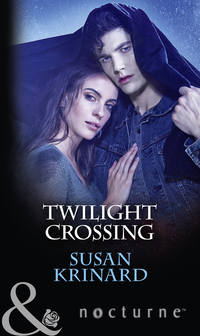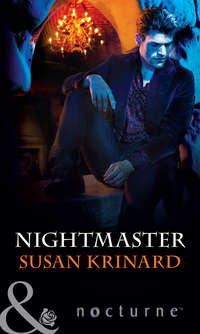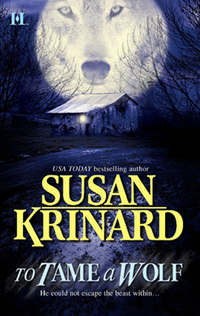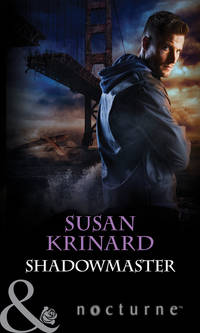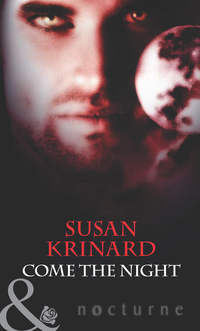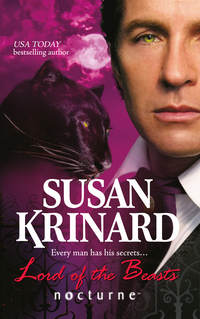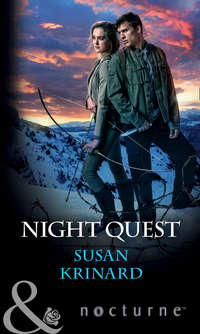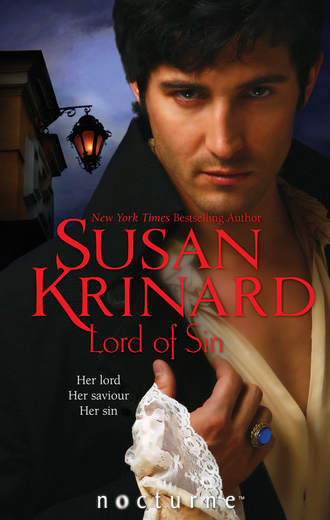
Полная версия
Lord of Sin
He had also declined to become a member of the confirmed bachelor set of which Sinjin was undisputed leader. Erskine was constitutionally incapable of being a rake; he actually regarded women as friends and equals.
“Quite a beauty, isn’t she?” Leo commented, squinting his curious gray eyes.
Sinjin chuckled. “How can you tell? All I see is the back of her. And you’ve left off your spectacles.”
“It was you who advised me not to wear them. ‘Too bookish,’ you said.”
“So I did.” He slapped Leo’s back. “Someone must look after you, Erskine. You’re a little lost lamb. You ought to join one of our gatherings…you might even enjoy it.”
“Not I. I should rather read in my library.”
“Of course. How foolish of me to suggest it.”
Leo began to speak again, but Sinjin’s attention had already wandered back to the fire maiden. She had turned slightly, but her face was still not visible. Yet there was a lightness and grace about her movements as she bent her head to listen to one of the ladies standing beside her…a tall, dark-haired woman Sinjin recognized.
“I see that the lady in question keeps company with the widows,” Sinjin remarked.
“Widows?”
“You haven’t been living in a cave, Erskine. Those widows. The untouchables.”
“Ah, yes. I believe they call themselves the ‘Widows’ Club.’”
“The Witches’ Club,” or so some liked to call them: a half-dozen wealthy, well-bred and eccentric ladies who had vowed never to marry again. Sinjin felt a flicker of disappointment.
“Are you acquainted with them?” Erskine asked.
“One would be hard-pressed not to be aware of the dowager Duchess of Vardon,” Sinjin said. “She believes she is some sort of ancient princess.”
Erskine pinched the bridge of his nose as if he were pushing up his missing spectacles. “Eccentric she may be, but she is a renowned hostess. For the past two years she has wielded considerable power in Society.”
“Ha! As usual, you know far more than you let on.”
“As you said, I have not been living in a cave.” Leo smiled knowingly. “Even you cannot scorn such a formidable lady, Donnington.”
“I won’t kowtow to any woman, not even a former duchess.”
“It would nevertheless be unwise to let her know that you despise her, or her chosen companions, because of their sex.”
Sinjin ignored Erskine’s comment. With increased interest, he let his gaze wander over the other women standing near the fire maiden. There was another ginger-haired girl pressed so close to the painting that her nose almost touched it; she wore one of those odd Aesthetic dresses without bustle or stays. It would, he reflected, be a good deal easier to get a woman out of such a garment, especially if one were in a hurry.
But his gaze passed over her, pausing only briefly on the stiffly upright young woman in the severe gray suit, the plump blonde, the brown-haired girl in an unbecoming and out-of-fashion dress and the older woman with a good figure and what might accurately be called a “handsome” face. He lingered a moment on the very young girl with black hair and dull gray dress: she must be still in mourning. Too young, in any case.
And that brought him back to the fire maiden. If she didn’t have a horse’s face or spots, she would be nearly perfect.
You may have vowed not to marry again, my dear, he thought. But that does not preclude a little entertainment on the side.
“What do you know of her, Leo?”
Erskine didn’t ask which “she” he meant. “Lady Charles, wife of the late Lord Charles Parkhill.”
“Parkhill? Charles is dead?”
“Two years ago, of a longstanding illness.”
Sinjin shook his head. “I’m very sorry to hear it. I knew him at Eton…even then he was often in ill health.”
“Yes. Poor fellow—after so many years of isolation at his estate, he had few people but his family to mourn him when he passed on.”
“I didn’t know he had married.”
“Only six months before his passing. Lady Charles cared for him until the end. She was completely devoted to him and never left his side. Even after she was widowed, she remained in the country until this Season.”
“She is newly come to London?” Sinjin asked, surprised.
“Yes. The dowager Duchess of Vardon and the dowager Marchioness of Oxenham have been introducing her around town, but I understand that she has remained somewhat reclusive.”
“Who are her family?” he asked.
“That, I have not heard.” Erskine frowned. “Are you thinking of pursuing her?”
“I might have done, if not for Charles. I owe him a certain respect in light of our time together at Eton.”
“You owe him respect, but not his widow.”
“She does not seem particularly stricken.”
“You know nothing about her except what little I have told you.”
“Have you an interest, Erskine?”
“I need not be a member of your set to decline the pleasure of marriage,” Erskine said.
“And you would consider nothing less.”
“I am hopelessly old-fashioned, as you have so often reminded me.”
Sinjin snorted. “Someday your virtue will take a tumble, my friend.”
“And one of these days, old chap, you may find a woman who is your equal.”
“If such a creature existed, I would marry her on the spot.”
“May I take you at your word, Sin? Shall we make a friendly wager of it?” Leo suggested.
“You aren’t a gambling man.”
“The study of human nature is one of my favorite occupations.”
“I don’t know that I wish to be an object of study.”
Leo produced his wallet and counted out twenty pounds. “Surely you can afford this much. But if you are afraid…”
“Afraid of a woman?” Sinjin thrust out his hand. “Done.”
“Then I shall leave you to it,” Erskine said, smiling with an artless warmth that made Sinjin remember why they were friends. The tall man stalked away like an amiable giraffe and was lost in the crowd.
Throwing off a peculiar chill of unease, Sinjin returned his attention to the fire maiden. She was gone. He moved closer to the line of people observing the paintings and followed the flow.
There. She had stopped again and was examining a Frith with her head slightly cocked and her profile clearly visible.
No horse’s face, and no spots. Sinjin didn’t need to see the rest of her features to know she was lovely. He realized that her profile was familiar; he must have met her before he went to India, but he couldn’t remember the place or time. How could he not have noticed her then?
He began to move in her direction, walking parallel to the queue of observers. The second ginger-haired girl was expounding on some aspect of the painting, her hands animated. The plump blonde nodded. The fire maiden suddenly turned around to face in Sinjin’s direction, exactly as if she had felt his stare.
Summer lightning broke through the ceiling and pierced the center of Sinjin’s chest. He ducked behind a pair of amply bustled women and waited until she had turned back to her friends.
Nola.
That had been the name she’d called herself four years ago at Donbridge, the Donnington estate in Cambridgeshire. He had never learned her surname, or if she had been acquainted with polite society. He had never ascertained how she had been able to pose as an ordinary chambermaid, barely out of childhood, only to transform into the mysterious beauty she had become just before she had fled Donbridge…this same beauty who stood before him now.
But she had introduced him to a world most men didn’t know existed: Tir-na-Nog, a mystical plane ruled by the Fane, a race of magical beings who were prone to interfering in mortal affairs.
Just as she had interfered.
Sinjin locked his hands behind his back, calming himself with a few long breaths. Why was she here? How had she managed to snag the son of a marquess?
He laughed under his breath. She could do anything she chose, couldn’t she? If she could change her very face, paralyze a man with a flick of her fingers and deceive those she claimed she wanted to “help,” she could certainly trick a dying man into marrying her. Her professions of “fading powers” had not rung true; she had certainly lied to Sinjin about her weakness, even as she revealed her true nature.
A witch. Not a crooked-nosed, hump-backed crone, but this. This female any man might desire. A creature neither Fane nor completely human. A woman whose motives were not to be trusted for a moment.
If he had been possessed of less discipline, Sinjin might have confronted her then and there. But he would have been walking into a situation he knew nothing about. She might very well have heard he was in Town; she obviously didn’t fear the prospect of meeting him again.
And why should she? She had used him just as she had the others. Yes, Mariah and Ash had found their happiness, but Giles was dead. And Pamela…
“Have you seen that girl?”
Wiping the scowl from his face, Sinjin turned. Felix Melbyrne, his latest protégé, was grinning like the fool cub he was, his gaze fixed on the very point where Nuala had been standing. Sinjin’s hackles began to rise.
“Which girl?” he asked.
“Which girl? Are you as blind as Erskine?”
Sinjin began to wonder how many of his friends were going to turn up to disturb his thoughts. “Enlighten me,” he said.
“That girl, right there, beside the ginger-haired one.”
His aching lungs reminded Sinjin to breathe again. “The dark one?”
“Who else?” Melbyrne’s blue eyes glittered. “I’ve already asked around. She’s a widow, Donnington, and well out of mourning.”
“She looks it.”
The boy frowned as if he’d noticed the girl’s drab gray dress for the first time. “Poor child. It isn’t right for such a lovely girl to suffer so.”
Sinjin passed over Melbyrne’s amusing reference to the young woman as a child, when the boy was scarcely out of leading strings himself. “What is her name?” he asked.
“Oh. I suppose you wouldn’t know…she’s been in seclusion for the past year, and before that she—”
“Her name?”
“Lady Orwell.”
“As in the Viscounts Orwell?”
“Precisely. Hardly anyone knew anything about the late viscount’s bride, since he had been living in Paris for a number of years and seldom crossed the Channel.”
“I never met the man.”
“Most knew him only by reputation. How that old curmudgeon could catch a beauty like this one…”
“Orwell was deuced rich, wasn’t he? Who are her parents?”
But Melbyrne wasn’t listening. “Isn’t she glorious? All that black hair. A man could drown in it.”
It was ginger hair, not black, that Sinjin was envisioning.
“I should say,” Sinjin said, “that she would not be the easiest lady to conquer.”
“Why not? She isn’t in seclusion now. She—”
“She is with that flock of widows who have vowed never to marry again.”
Felix blinked. “That girl? Preposterous. And who said anything about marriage?”
Sinjin smiled cynically. The boy was still green enough to think of binding himself to a female before he reached the age of forty. One misstep, and he might fall. And that Sinjin was determined to prevent.
“Perhaps you ought to set your sights a little lower,” Sinjin suggested. “The younger they are, the less likely that they will be able to conceal any…indiscretion. There are any number of experienced women who would be happy to accept your attentions.”
“But where is the challenge in that? You always say a good challenge makes it all the more satisfying when one is victorious.”
So he had. But Melbyrne might easily bite off more than he could chew…especially since it was clear from Lady Orwell’s attitude that she regarded Nuala as a friend. The girl was near the age Mariah had been four years ago, and, to judge by her eager reception of Nuala’s speech, just as trusting.
Don’t get tangled up with her, boy. No pretty young widow is worth the trouble.
But how could he tender such an opinion without explaining what Nuala was? The real events at Donbridge remained a secret, and would never come to light.
Best if he simply distracted the boy, pointing him toward a less perilous partner who would teach him what he needed to learn.
“Come, Melbyrne,” he said, gripping the young man’s arm. “Don’t make any sudden judgments. There are many other pretty pictures to see.”
Felix sighed. “If you insist, Donnington.”
Sinjin didn’t look behind him as he led his pro-tégé away from immediate danger. He suggested several suitable partners, at least one of whom returned Melbyrne’s polite smile with a coquettish one of her own.
“Mrs. Tissier is an excellent prospect,” Sinjin said. “She is still young, a courtesan of the first water.”
“A courtesan? What is she doing here?”
“The prince has been known to favor ladies whom Society would ordinarily ignore. Mrs. Tissier is one such lady. As such, she enjoys a certain caché.”
“Have you had her, Donnington? Is that why you consider her such a prize?” Felix snorted. “Of course you have.You’ve had all of them at one time or another.”
The implied insult missed its mark. “You aren’t likely to find a married woman in our set who hasn’t taken at least one lover,” Sinjin said. “If a matron has borne the necessary offspring, she can always pass an additional child off as her husband’s. His own infidelity makes it unlikely that he would raise an objection even if he suspected the truth.”
“I know all that, Sinjin, but—”
“Of course your prospect need not be married at all. Mature widows are generally intelligent enough to recognize the danger of having their amours confirmed by an unexpected birth.”
“I know how to take precautions,” Felix said with a flash of uncharacteristic irritation.
“Precautions or no, there is always a risk. You must convince the lady that you have such matters under control, and then keep your word.”
“Which you always manage to do.”
“I have produced no children, to my knowledge,” Sinjin said mildly. “I avoid naive young widows just as I do girls who have yet to take their marriage vows. I urge you to follow my example.”
“I’m not so certain I belong in your dashed club.”
Sinjin yawned. “That is entirely up to you. But if you make a mistake and find yourself forced to marry the chit, don’t come running to me.”
Frowning, Melbyrne gave Mrs. Tissier a second look. “If you wouldn’t mind, Donnington, I’d like to do my hunting in peace.”
“As you wish.” Certain that he’d made his point, Sinjin walked out of the Academy and breathed in London’s not-so-fresh air. At least here, away from the crowd, he was able to think.
He’d told Melbyrne that a challenge was always most satisfying, and he’d faced more than a few himself. But there was one woman in the world he wouldn’t pursue for all the tea in China. Except to make her explain…confess…
He didn’t know what he wanted of her. He only knew that he couldn’t let her go until he finally understood who and what she was. Until she knew what it was like to be the one truly without power.
DEBORAH CLUTCHED at Nuala’s hand.
“Did you see him?”
Nuala looked away from the Frith. The prickle of awareness she’d felt earlier returned with a vengeance.
“See whom?” she asked a little too sharply.
“That young man who was staring at us.”
Nuala turned fully in the direction Lady Orwell was looking, her heart beating much too fast. “I don’t see any young man,” she said. “Can you point him out?”
Deborah stood up on her toes. “He isn’t there now.” She met Nuala’s gaze, her own filled with surprising disappointment. “He was…quite handsome, with fair hair and blue eyes.”
The sharp ache in Nuala’s chest eased. Not him. She had heard that he was recently returned to London from India. She knew their meeting was inevitable, but she was not ready to face the Earl of Donnington.
She forced her thoughts back to Deborah’s young man. Lady Orwell’s description might indicate any number of gentlemen in Society, and both she and Nuala were as yet unfamiliar with many of them. But Deborah’s tone was most interesting, most interesting indeed. It was almost as if she were amazed by the fact that she might be the object of a handsome young man’s attention.
“He must have noticed you,” Nuala said, relieved that her own feelings of being watched had proven unfounded. “Who would not?”
“Oh, no. It must have been you he was looking at.”
“You are by far the greater beauty, and I am past my prime.”
“But surely he noticed that I am in mourning.”
“Half-mourning. And even that will not prevent a man’s admiration.”
Deborah flushed. “Perhaps I ought not come out so often.”
“It is good for you, Deborah. Grief does not make the world go away, as much as you might wish it.”
“I wish that I might crawl into a black pit and never come out again.”
“No, you don’t.” Nuala took Deborah’s arm and linked it through hers. “You are not alone now. You will always be with one of us, wherever you go.”
“I feel safest with you.”
After much soul-searching, Nuala had taken on the role of a kind of mentor to Deborah. There was, of course, some risk; though Nuala’s magic was gone, she might conceivably live for many more years before she was granted the release of death.
It is only for Deborah’s sake, she reminded herself. Soon enough she’ll have no further need of me.
“I suggest that we continue to enjoy the paintings,” she said. “The others are well ahead of us.”
“Oh, yes. We should catch them up.”
Deborah hurried toward the beacon of Tameri’s gold collar. The Widows were laughing about something or other, drawing a few mildly disapproving stares. After all, truly well-bred women merely tittered, if they laughed at all. But in spite of her severe suit and upright bearing, Frances cared nothing for the opinion of Society. Nor did Clara, who had joined in her hilarity. Maggie was simply oblivious to the judgment of others. Their enjoyment of their joke even affected Deborah, who all but grinned in delight.
Yes, there was hope for the girl yet.
Clara smiled at Nuala. “Well,” she said, “we wondered where you had gone.”
“Deborah and I were merely watching the crowd.”
“Fascinating, isn’t it? The study of human nature is a most vital subject that has long been neglected.”
“Perhaps you ought to take up the study yourself, Clara.”
“Not I. I’m content with my microscope and telescope.”
Tools she would not have been permitted to use when Nuala had been a girl. In those days, mortal men had done far worse than scoff at women who held such lofty interests. Any female who stepped out of her proper place of humility and obedience, let alone show skill in pursuits that might conceivably cross the boundaries set by the Almighty…
“Are you ill, Nuala?”
“I’m quite well,” Nuala said. “Have you seen the new florals in the next room?”
Lillian’s round blue eyes lit up. “No, I have not. Shall we visit them?”
Allowing herself to be guided into the adjoining room, Nuala quieted her memories. Memories she had once been able to set aside so easily. Why were they returning now with such potency, when she least desired them? Was this to be yet another punishment?
She glanced at Lillian’s laughing eyes and reminded herself again that she had not been completely abandoned. There might yet be answers. And perhaps, when she finally met Sinjin again, she could lay at least one of her ghosts to rest once and for all.
CHAPTER TWO
THE HYDE PARK PARADE was in full swing. Nuala, Deborah and Victoria, the Marchioness of Oxenham, sat comfortably in Lady Oxenham’s sparkling landau, which—in spite of its team of handsome grays—moved no faster than a walking pace and frequently came to a complete stop amid the crush of carriages and horsemen and women.
On any given afternoon—or mornings on Sundays—Rotten Row was the place to see and be seen. Countesses, baronesses and ladies of every description mingled with gentlemen and peers in their riding clothes and top hats, smiling as the constant swirl of dust settled on their parasols and compelled them to cough most discreetly behind their lace handkerchiefs.
Nuala didn’t mind the dust. She watched the comings and goings of the lords and their ladies, superb horsewomen in snug riding habits, young bucks driving their own phaetons, the more staid matrons showing off their equipages and dipping their heads to those who were privileged to know them. Each of them had a story. Sometimes Nuala imagined that she felt the spark that had always guided her in choosing who most needed her help: here a lonely young man whose shyness made it impossible for him to approach the woman he loved from afar; there a young spinster whose plain face concealed a keen intellect and loving heart.
She stopped such speculation before it could proceed any further and returned the greeting of a horsewoman to whom she had recently been introduced. The marchioness’s progress had been interrupted many times by such admirers; she had many friends. Her musicales and parties were much admired by both members of the fast Marlborough House Set and the more conservative followers of the Queen. She had a pleasant word for everyone, and frequently pointed out the leading lights of Society to her two guests.
“Look! Isn’t Lady Rush’s hat extraordinary?” Lady Oxenham asked, peering through her lorgnette. “I shouldn’t have the nerve to wear it. But of course she never gave two straws for the dictates of fashion.”
“I rather like it,” Deborah said in a tentative voice.
The marchioness chuckled. “It is just the sort of thing any young woman of imagination might fancy, I suppose,” she said. She smiled at Nuala. “And are you enjoying our outing, my dear?”
Nuala laid her hand over Lady Oxenham’s. “If it hadn’t been for you and your patronage, I wouldn’t be here at all.”
“Oh, pish. You are the wife of my son. You made his last days the happiest of his life. It is we who owe you our deepest thanks.”
An unaccustomed flush warmed Nuala’s cheeks. “If only I had been able to do more for him….”
“Never reproach yourself, dear Nuala. Charles loved you.”
“A poor vicar’s daughter.”
“A woman of great compassion and sensibility is not to be dismissed merely because of rank. And now you are Lady Charles Parkhill, and shall be until you marr—” She paused and waved her fan vigorously before her impressive bosom. “I did not mean to offend, my dear.”
Nuala squeezed her hand. “Of course not, Lady Oxenham.”
The older woman beamed at Deborah. “And you, Lady Orwell? What think you of our grand city?”
“Sometimes I think it can’t quite be real,” Deborah said, giving her own fan a quick shake.
“Indeed, at times I wonder the same thing myself.” The marchioness settled in her seat with a sigh of satisfaction. “Of course, Paris is nothing to sneeze at. You must have seen such sights there. Ah, Lady Bensham is riding alone. No doubt she’s quarreled with her husband. Those two quite unfashionably adore each other, but one must expect…” She pursed her lips. “Ah! Here are a pair of gentlemen you might like to meet. You share much in common.”
Nuala followed her look toward the approaching riders. “What would that be, Lady Oxenham?” she asked, her breath catching in her throat.
The marchioness glanced at her slyly. “They have sworn not to marry, just like you.”
Deborah sat up and shaded her eyes with one gloved hand. “Truly?”
“Indeed. They call themselves the ‘Forties,’ because they have vowed to remain bachelors until they have passed the age of forty.”
“Is that so very unusual?” Deborah asked. “My own dear husband…”
“Not terribly unusual in younger sons, at least,” Lady Oxenham said. “But eldest sons must look to producing heirs of their own. And these young gentlemen have…something of a reputation.”





